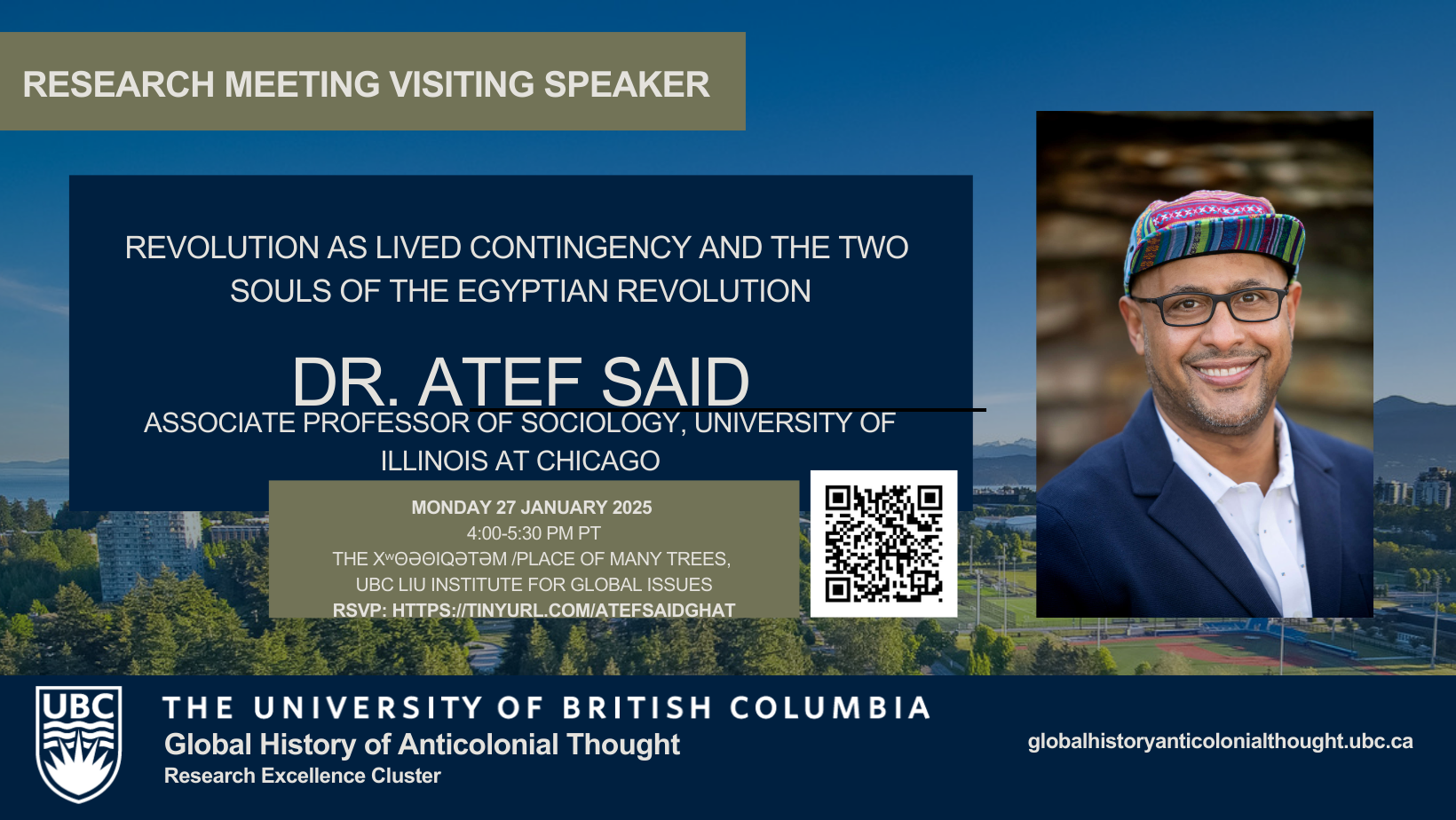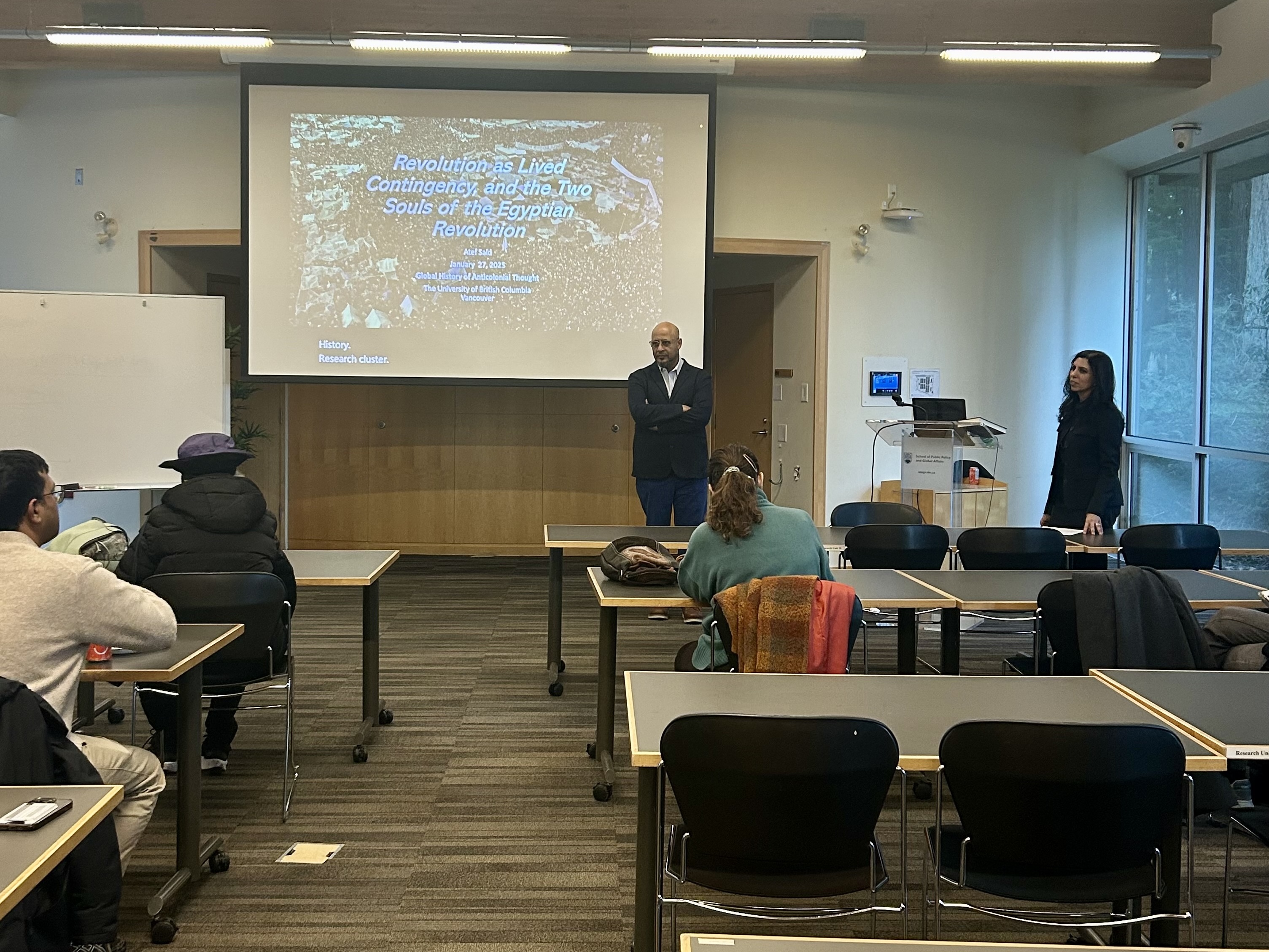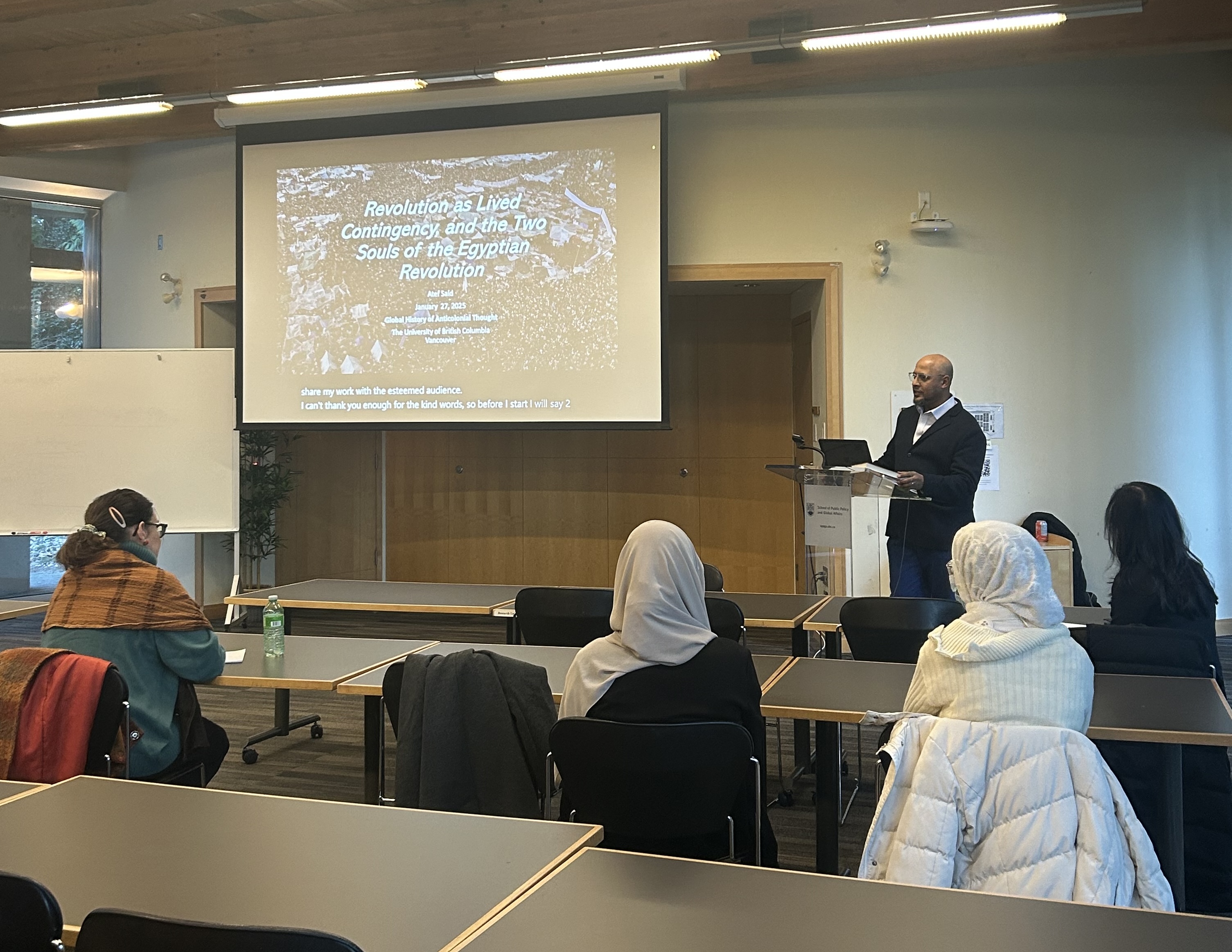Revolution as Lived Contingency and the Two Souls of the Egyptian Revolution, A Lecture by Dr. Atef Said
January 27, 2025, 4:00 pm to 5:30 pm

Dr. Atef Said is an associate professor of sociology at the University of Illinois at Chicago. His research engages with the fields of sociological theory, political sociology, historical sociology, sociology of the Middle East, and decolonial global sociology. He is the author of Revolution Squared: Tahrir, Political Possibilities and Counter-Revolution in Egypt (Duke University Press, 2024). Said currently works on two concurrent projects: The first explores the future of revolutions, where he examines the shifting meanings of revolutions historically in relation to coloniality and decoloniality and knowledge production. The second project investigates the global rise of neo-liberal authoritarianism over the past two decades, with a focus on the expanded role of digital technology in shaping and or eroding substantive meanings of democracy in relation to the rise of new modes of governance and digital capitalism.
Said is the recipient of numerous awards such as the 2024 Teaching and Praxis Award from the Marxist Sociology section of the American Sociological Association and the 2023 Collective Behavior and Social Movements’ Distinguished Contribution to Scholarship Article Award (honorable mention).
In this talk, Professor Said presented two key threads from his book “Revolution Squared: Tahrir, Political Possibilities and Counterrevolution in Egypt (Duke University Press 2024). The first is “revolution as lived contingency,” a key concept he develops and deploys in the book. Said demonstrates how Egyptian revolutionary actors navigated their power, and how thinking of revolution as a lived contingency can help us understand how revolutions do entail an explosion of possibilities as well as instigated projects of contaminants. The second thread is how the tension between the social and political demands (souls) in the Egyptian Revolution of 2011 shaped its trajectory. Through varieties of empirical evidence, Said demonstrates how the co-existence and tenson worked at various points in time and conclude by arguing against the taken for granted dichotomy of political and social revolutions. Leveraging the dual powers of ethnography and history, Said illuminates the trajectories of revolutions in general and Egypt’s in particular.
Photos from the Event

